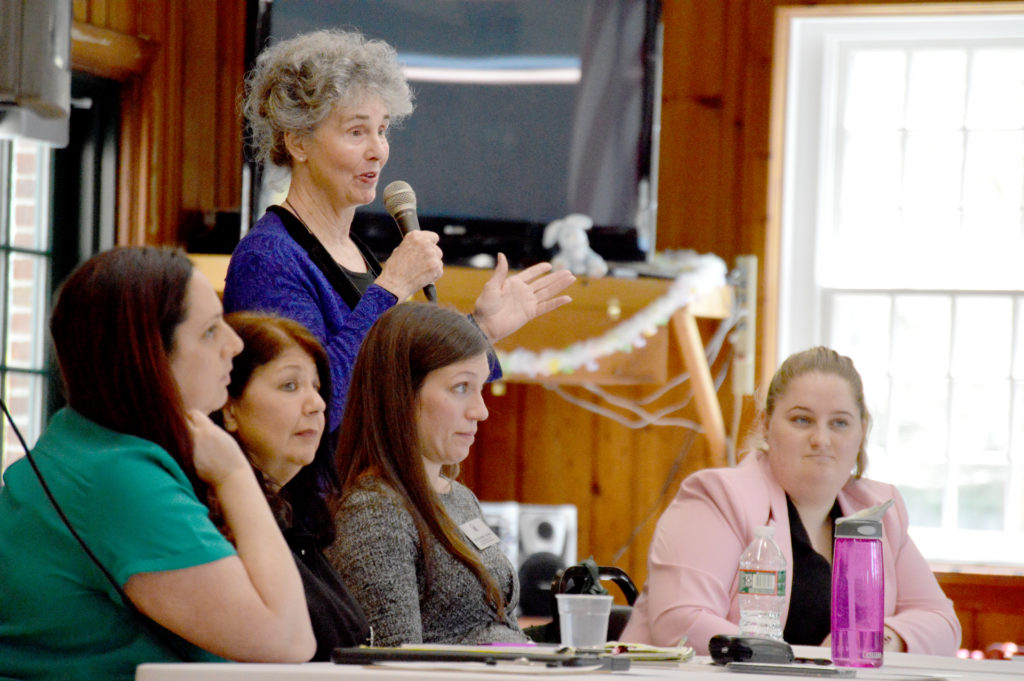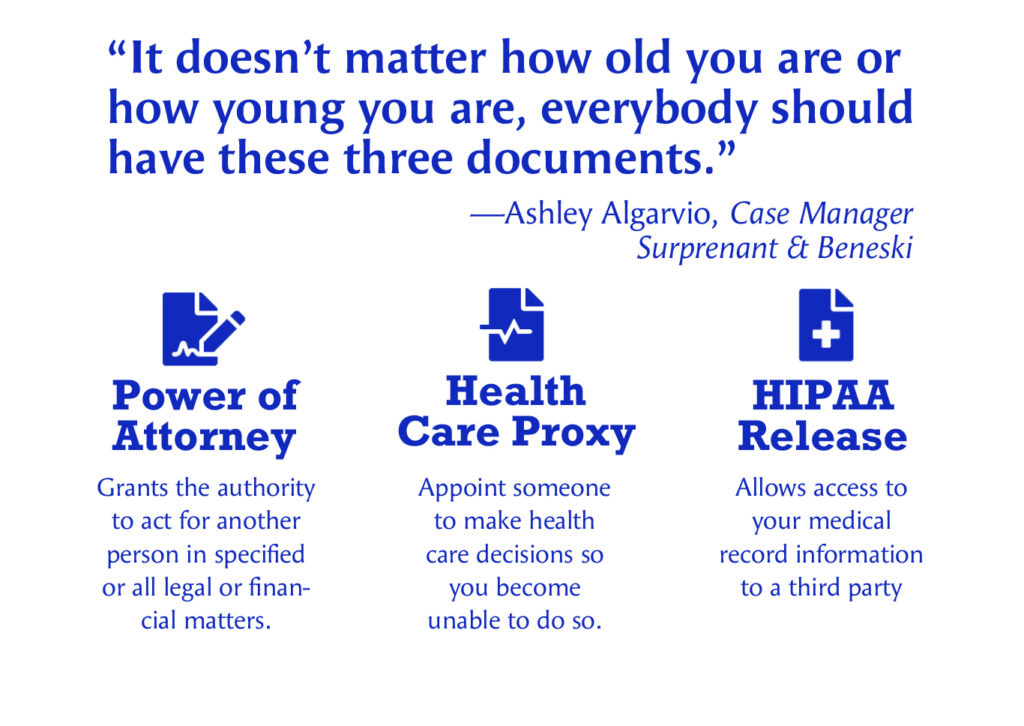
The “Good to Go” panelist from left to right: Ashley Algarvio, a case manager with Suprenant & Beneski; Karen Costello, Director of Quality and Education at Coastline; Nicole Reedy, a registered nurse with Community Nurse Home Care; and Shannon McArthur, a funeral director with Waring-Sullivan Funeral Homes. Standing: Daphne Clemente, a retired hospice chaplain.
This article originally appeared in the June 2019 edition of Senior Scope. Article, photo and graphic by Seth Thomas.
At a recent panel discussion at the Buttonwood Senior Center, five guest speakers explored end-of-life topics from various angles. The event was hosted by the Age-Friendly New Bedford Action Team.
The panelists reinforced that end-of-life planning is important for people of all ages and urged the audience to take strides to begin the conversation. But where do you even begin?
Karen Costello, Director of Quality and Education at Coastline, recommended starting with The Conversation Project, a public engagement initiative that began in 2010. The group has published a free “starter kit” on their website that can help guide your decision making.
“The Conversation Project is about having conversations with your loved ones ahead of time about the things you would want or wouldn’t want,” said Costello. “They can be difficult conversations to have, but if you have a script of what you want to talk about, that conversation can become easier.”
Once your thoughts about end-of-life planning start to take shape, you would next want to ensure that your decisions will be carried through. And that involves filling out some paperwork, much of which can be found online, at a doctor’s office or by consulting with a lawyer.
Ashley Algarvio, a case manager at the law firm Surprenant & Beneski, said the three most essential documents for end-of-life planning are a power of attorney document, a health care proxy form, and a HIPAA (Health Insurance Portability and Accountability Act) release form.
“It doesn’t matter how old you are or how young you are, everybody should have these three documents,” said Algarvio.
The power of attorney is a document where you name someone to make legal and financial decisions for you should you become incapacitated. Algarvio said that many people assume their spouse can automatically make those decisions should the need arise, but that’s not always the case.
“If you don’t have a power of attorney, you might end up in court. You might need to get a conservatorship. Those things cost thousands of dollars,” she said.
You can name someone in a health care proxy document to make medical decisions for you if you’re unable to. You can get a health care proxy form at the doctor’s office or online. You will need witnesses on a health care proxy, and a witness cannot be a person that you’ve named as your health care proxy.
“It’s important for the same reason as a power of attorney. You don’t want to end up in court last minute and pay thousands of dollars to make a decision for someone who doesn’t have that much time,” said Algarvio.
HIPAA laws protect the privacy of your medical information. A HIPAA release form enables a loved one to gain access to your medical information, as well as the ability to talk to your doctor, talk to your insurance company, and help you with bills.
Usually, when you go to the doctor or if you go to the hospital, they will have you sign a HIPAA release.
“Most health care proxies and powers of attorney have HIPAA language in them, but it’s always good to have a separate document because a HIPAA release can be used at any time,” said Algarvio. “You don’t have to be incapacitated for someone to use the [release] to get access and talk to your doctor.”
Once these three documents have been completed, make sure copies are stored in a safe place and in the same location. The people you name in these documents should have access to the documents should the need arise.
“It’s imperative to keep these conversations open,” said Nicole Reedy, a registered nurse with Community Nurse Home Care. “We see day in and day out that these conversations haven’t been had. We acknowledge these conversations are not easy to initiate. But it can be a blessing to have decisions made ahead of time.”
For more resources on how to get started, visit The Conversation Project’s website at theconversationproject.org.



Recent Comments